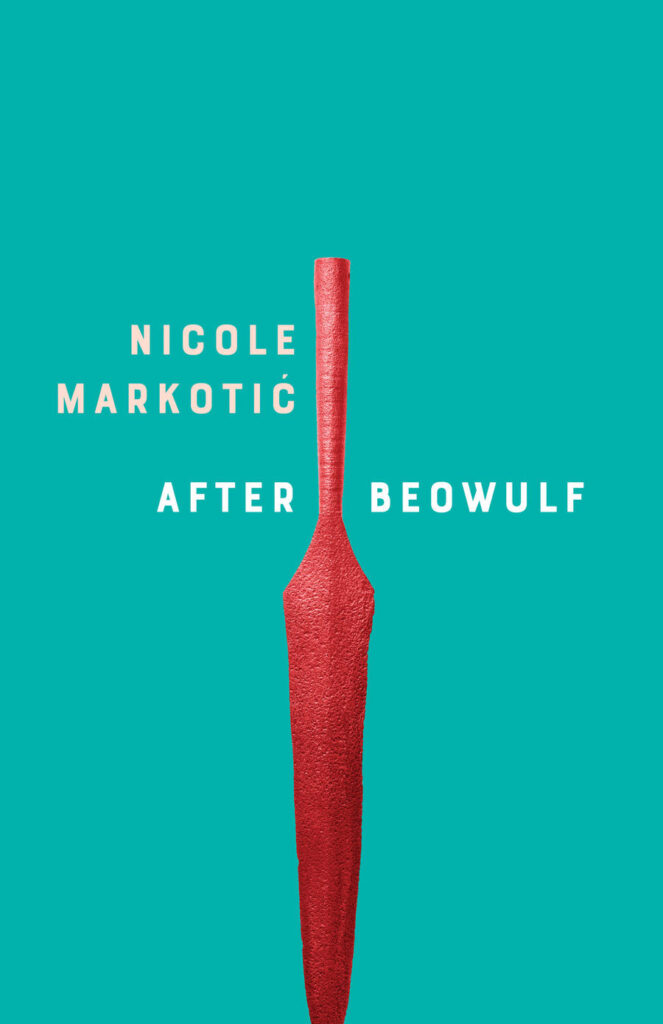After Beowulf, Nicole Markotic

Nicole’s book is a revision of the classic hero’s tale, Beowulf , the Anglo-Saxon epic poem depicting the hero of Beowulf and his defence of the great hall Heorot from the monster Grendel and his vengeful mother. Believed to be composed sometime between the 8th and 11th century and the physical surviving manuscript dating to around 1000 AD, this ancient poem was told orally before being written down and encourages themes of the Germanic warrior culture, such as bravery, war, honour, and duty. Through intertextuality, Markotic is able to depict a revision of the epic poem using comedy to expose the idealization of violence and women as monster also present in the original Beowulf poem. Using an old story and revising it into a version to which is applicable to a 21st century audience through common contemporary slang, light humour, and a fast paced read, readers can view Beowulf through a feminist lens and poke holes in the patriarchal structure and social/gender norms present in the original version. Her revision is an important and fun text that I have re-read numerous times since my first reading that has given me more to think about each time I read it. Markotic points out Grendel’s mother’s nameless-ness and monstrosity in the original version by depicting her as she imagined her to be, a grieving mother over her son’s murder, hell-bent on revenge against Beowulf who has taken him from her. By humanizing Grendel’s mother and her actions, a feminist reading takes place, and I could notice the familiar trope of “woman monstrosity” in folklore, such as “evil” queens, step-mothers, mistresses, and half-women half-beast that depict women in any state of reaction or emotion as monstrous, evil and to be feared and “slain” in society, much like Grendel’s mother is slain by Beowulf’s sword. She also points out historical biases, as Beowulf is still the “hero”, but is depicted as someone who just wants to hunt and kill monsters, critiquing the original epics upholding of entitled bravery. I chose to mention this book in my blog to reflect the importance of everyday reading as I believe it demonstrates the power of critical thought regarding old narratives and reading them through various theories, lenses, and revisions to learn new values and lessons that are applicable to our lives today. Through this fun, lighthearted, and relatively short novel, important discussions around the social norms/expectations of men and women in patriarchal society, the demonization/suppression of outspoken women, the self-serving dangers of violent acts of “heroism”, the importance of homosocial bonding between men, and many more important themes that are prevalent in our lives today. By becoming aware of these narratives, I could point to real life experiences and examples in my daily life that contribute to those still existing narratives, but also allows me to realize that people like Markotic, and therefore me as well, can think organically and critically about anything, even an ancient text re-translated and re-written thousands of times through history, and still find valuable lessons within them.
